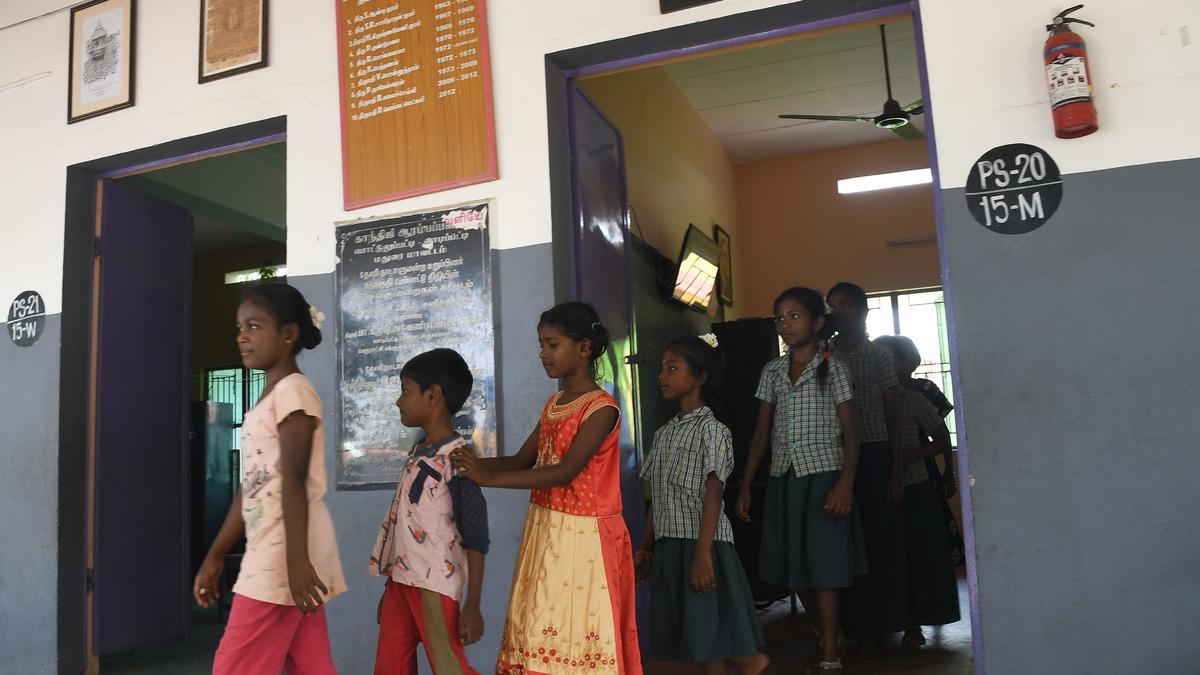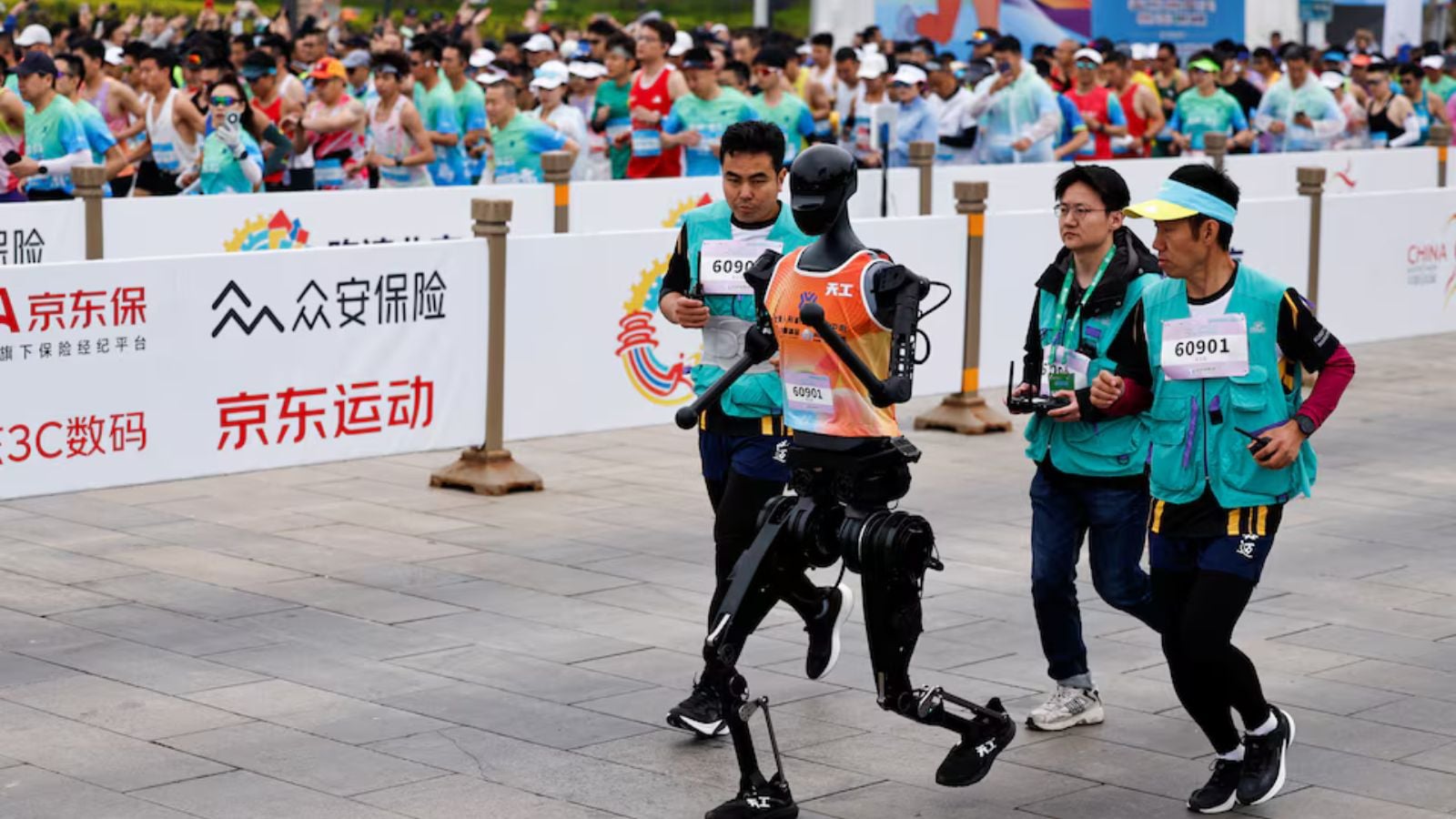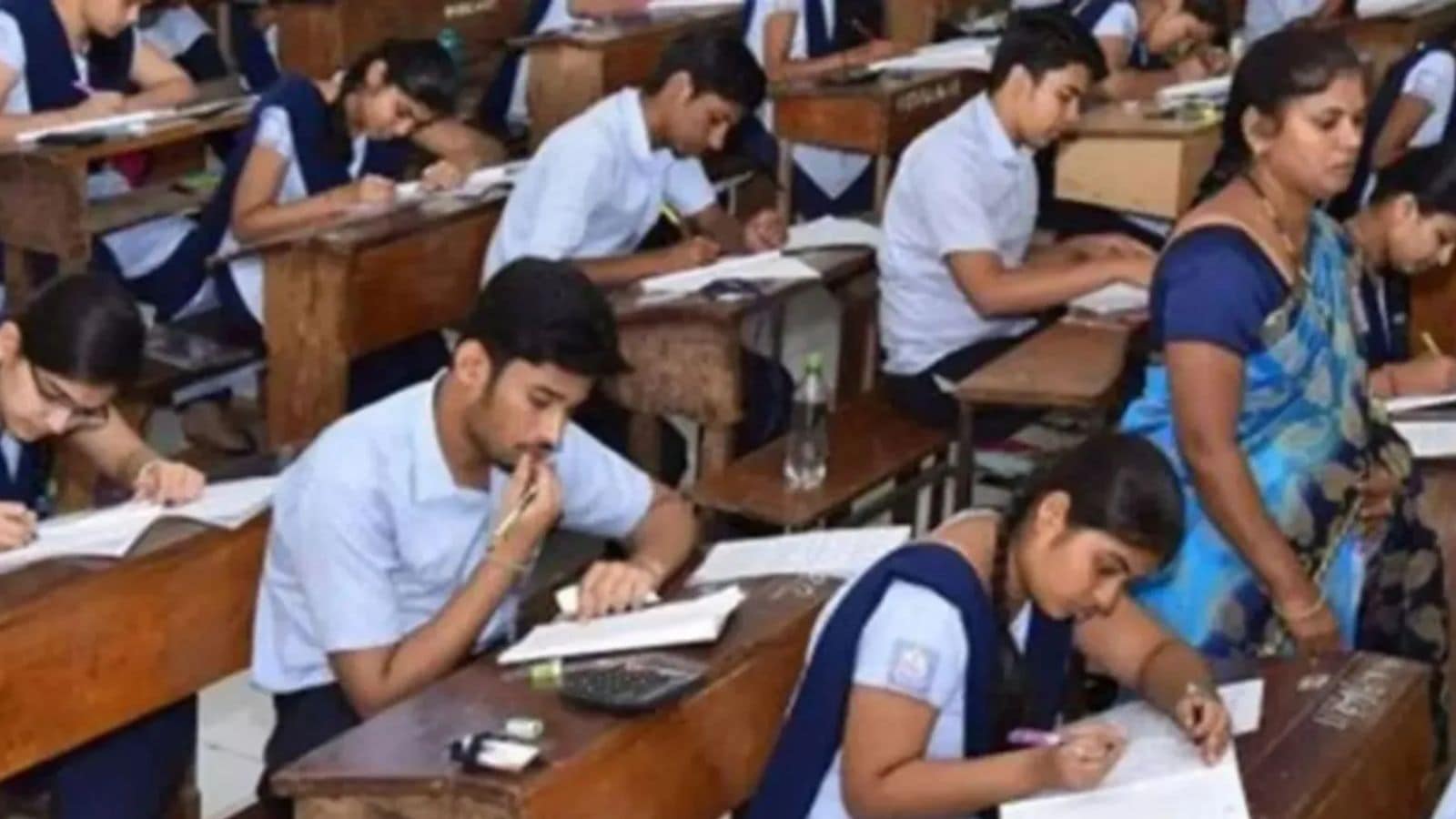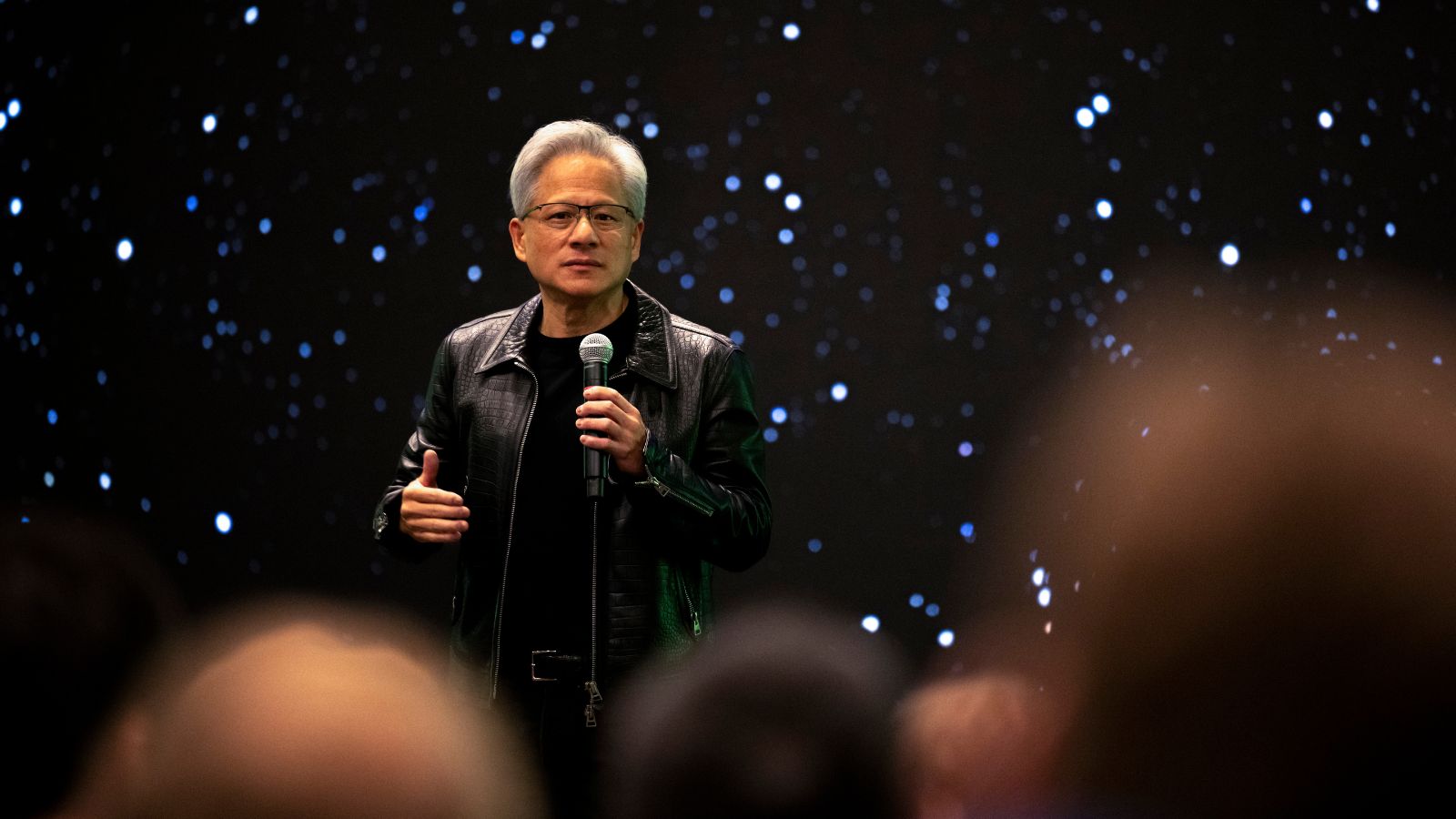Gandhiji Primary School at Vadipatti near Madurai, that was started by V Ponnuthai, a Dalit woman who fought against several odds to keep it running.
| Photo Credit: MOORTHY G
Sometime in the 1980s, a Dalit woman walked into a tea shop reserved for people from the upper caste in southern Tamil Nadu. She ordered a cup, drank it, and walked out. “This action was her statement,” recalls her grandson N Dhanapal. Today, seated in a classroom of Gandhiji Primary School that the late V Ponnuthai started 70 years ago, the 47-year-old remembers his grandmother who “feared no one”.
Gandhiji Primary School is a Government-aided school in Vadipatti, a panchayat town in Madurai district, known for its weekly farmers’ market. It looks like an ordinary structure at first glance; colourful artworks done by children are up on the walls of classrooms, on which hang portraits of Gandhi and Ambedkar. But what sets this school apart from numerous such institutions across the State, is that it is the result of one woman’s vision.
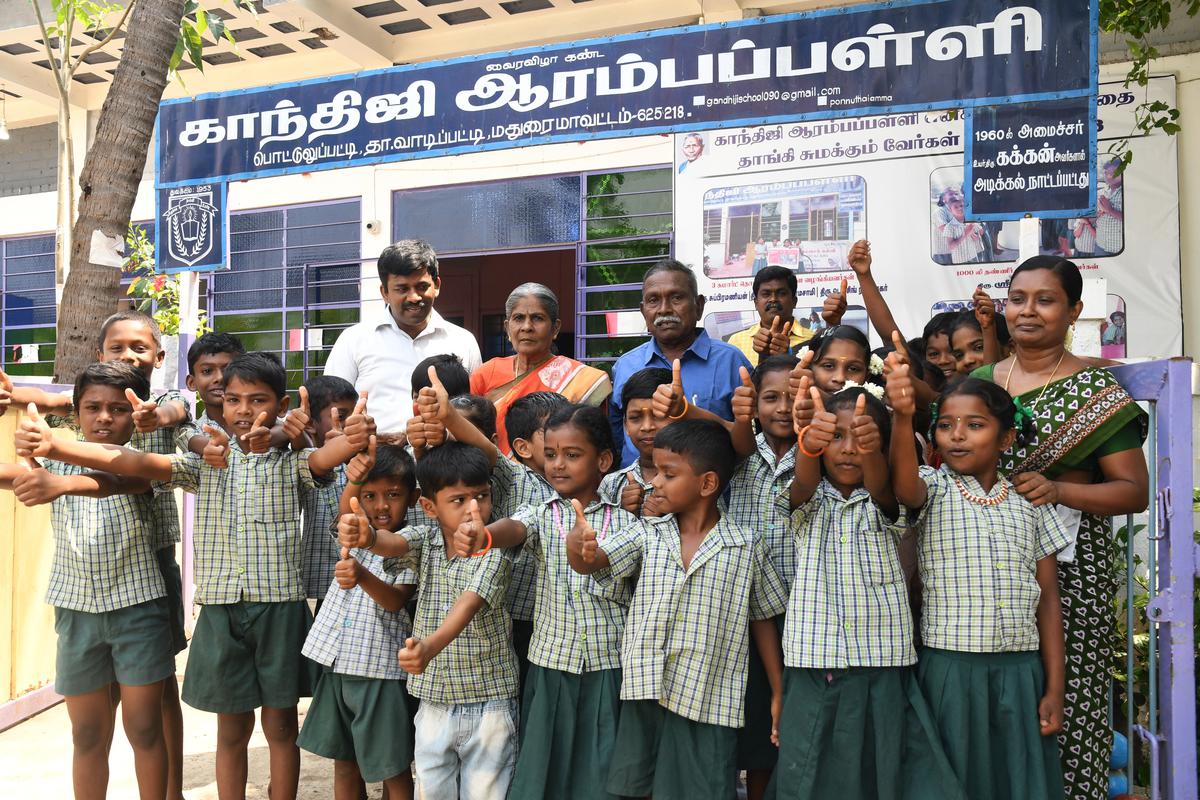
Nageswaran (in blue shirt) and the teachers of the school
| Photo Credit:
MOORTHY G
A portrait of a woman with gleaming nose studs, hangs over the lintel at the school. She is Ponnuthai, whose family migrated to Vadipatti from nearby Usilampatti for a better life. “Her father Vellaiyan worked for a local landlord,” recalls Ponnuthai’s son P Nageswaran.
The 71-year-old remembers his mother walking into a Panchayat school and enrolling herself with a group of friends on a whim. “She was successful in securing a place in the school,” he pauses. “Every time the teacher arrived at her name during the morning roll call, he would say ‘Vellaiyan’s girl’ and move to the next name. No one wanted to call her by her name.”
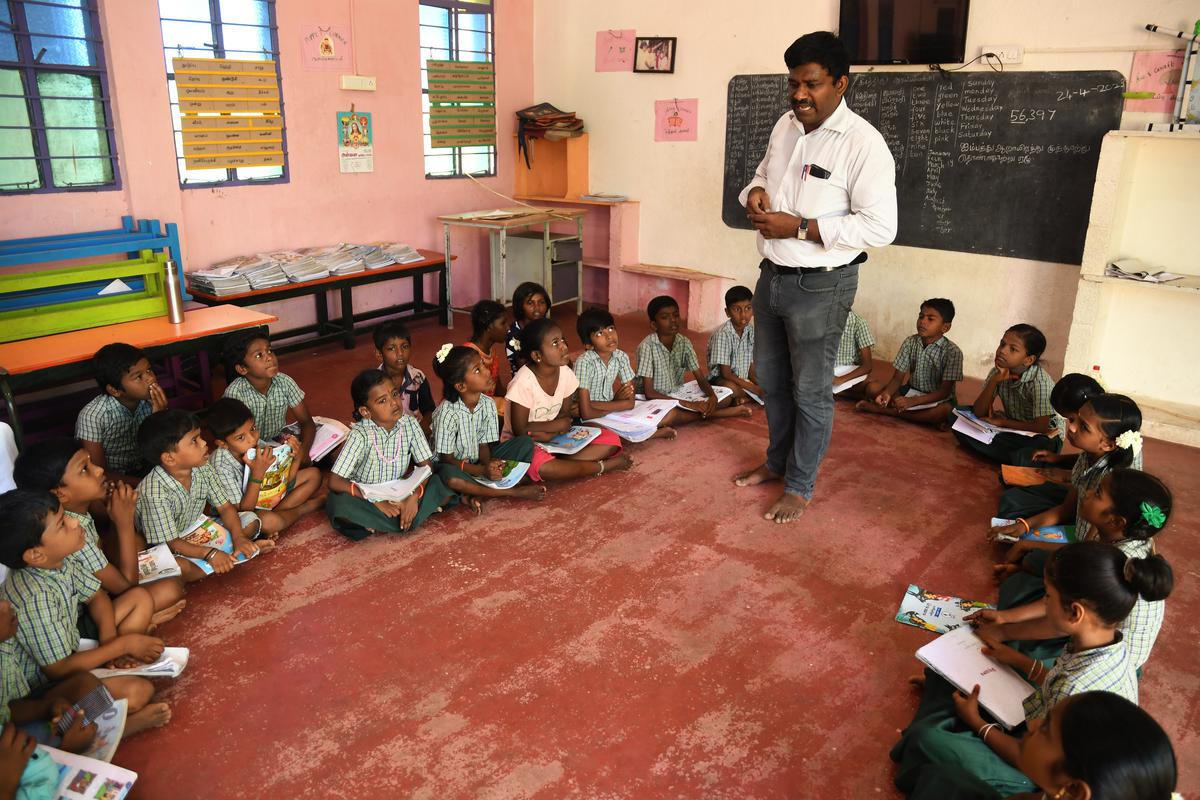
At Gandhiji Primary School at Vadipatti near Madurai
| Photo Credit:
MOORTHY G
And so Vellaiyan’s girl came to school early every morning, and swept the floors, as was expected of her. “She usually sat at a corner by the door,” recalls 70-year-old B Getsie, Nageswaran’s wife. But she stuck on to every word the teacher said, and eventually completed a Teacher’s Training course in Dindigul after finishing ESLC (Class VIII).
Ponnuthai became a trained teacher in 1952. She started her own school the same year, right in the middle of a settlement for the socio-economically disadvantaged where she lived. “She taught from a small room at home,” recalls Dhanapal, adding that the space was used as a slaughterhouse by her husband during the early hours of the day, and was cleared up to turn into a school once business hours were over. The structure had a thatched roof and one night, just a week after Ponnuthai started out, it was set on fire by vandals.
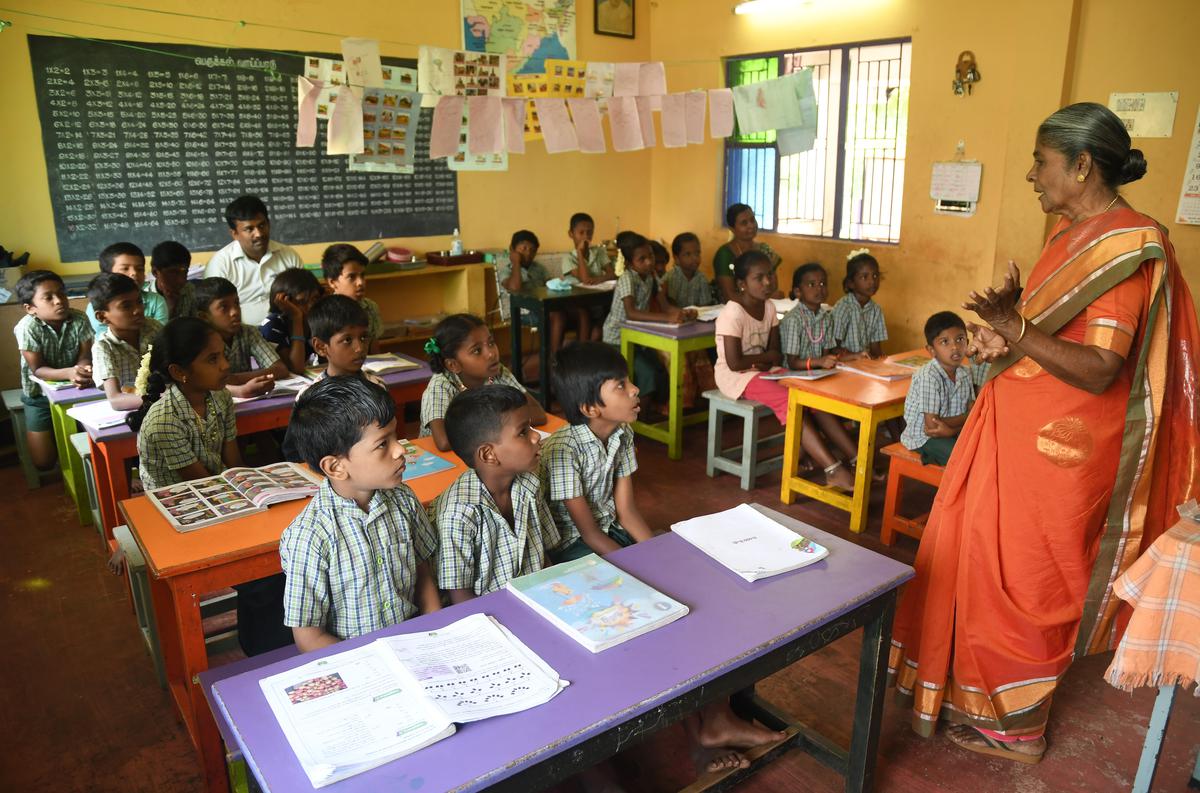
B Getsie, Ponnuthai’s daughter-in-law at the school
| Photo Credit:
MOORTHY G
But she got back on her feet even before the embers died down. This time, she taught under a tree, and more students joined in. Dhanapal says Ponnuthai’s school came under fire 10 times. “The fact that she was a woman, a Dalit who refused to give up enraged a lot of people,” he adds.
In 1960, Ponnuthai bought 10 cents of land in the same locality, marking the beginning of the structure that stands today. “Politician and freedom fighter P Kakkan laid the foundation stone,” says Dhanapal. Perhaps what drove Ponnuthai to keep at it was that students kept coming to her no matter where she taught. “So many parents trusted their children with her; I have heard how a group of students from a nearby hamlet would cross a knee-deep waterbody to come to study under her every day.”
But things were not smooth even after moving to her own building. In 1980, Ponnuthai’s school was razed to the ground. Dhanapal says his mother fled to Madurai with him, and returned a few days later. “As we neared the school, I could hear voices,” recalls Dhanapal. His ears strained to pick up the sounds. “It was the Tamil alphabet being recited in chorus. Grandmother had pushed the debris to a corner, and was holding classes right there.”


